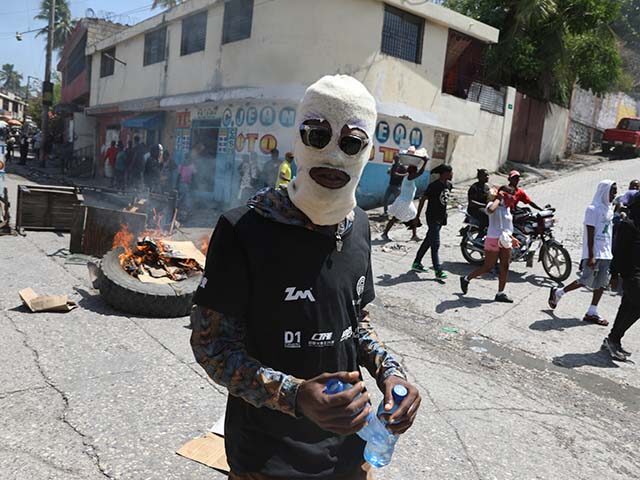The United Nations Integrated Office in Haiti (BINUH) said on Tuesday that the situation in the impoverished and violence-torn nation has “regrettably worsened” because ambitious gangs are now attacking territory they do not control yet, rather than merely terrorizing people on the turf they already rule.
“The situation in Haiti has not improved. There has been a 22% increase in the number of displaced people, and the political process is facing significant challenges, turning hope into deep concern,” BINUH director Maria Isabel Salvador told the U.N. Security Council (UNSC).
Salvador said the security environment in Haiti “remains extremely fragile, with renewed peaks of acute violence.” She highlighted the savage October 3 gang attack on Pont-Sonde in the Artibonite Department, in which 115 civilians were killed by heavily armed gangsters seeking revenge for police killing members of their organization.
Another massacre spotlighted by the BINUH director occurred in the town of Arcahaie, famed as the birthplace of Haiti’s flag, during the first two weeks of October. Gang enforcers murdered entire families in Arcahaie and tossed their bodies into mass graves, evidently to extend the authority of warlord Jeff Larose and his Canaan gang over the area.
Salvador said the rapid expansion of gang violence into the suburbs of Port-au-Prince, and then into the surrounding farmlands, is too much for the Haitian National Police (HNP) and the handful of officers sent by Kenya to keep up with. She said gang leaders are “spreading terror and fear, overwhelming the national security apparatus.”
Several countries have pledged to send over 3,000 troops to Haiti for peacekeeping, but only a few hundred have arrived to date. Gang leaders have scoffed at the Kenyan officers, deriding them as entirely ineffective. Kenyan officers have only been involved in one major operation to date, recapturing the town of Ganthier from a gang called 400 Mawozo in July. The gangsters simply left town when the Kenyan officers arrived, then recaptured the town within days of their departure.
Catherine Russell, advocate for Haiti from the U.N. Children’s Fund (UNICEF), said Haiti’s gangs are increasingly using sexual violence against women and children to keep the population in line.
Russell noted that up to half of the informants, menial servants, and sex slaves held by the gangs are children, and some of them have been forced into service as child soldiers.
“Gang rape is used as a weapon, and the bodies of women and girls are battlefields,” agreed Rosy Auguste Ducena of Haiti’s Naitonal Human Rights Defense Network.
Ducena complained of “rampant corruption” among high-ranking Haitian officials, who are draining the national treasury and funneling some of their loot to gangs, who use the money to purchase weapons.
The U.N. estimates that some 4,200 Haitians have been driven from their homes in the suburbs of Port-au-Prince in just the past week, joining the 700,000 people displaced by the gang war since the assassination of President Jovenel Moise in July 2021.
On Monday, a gangster coalition called Viv Ansanm began attacking the government-controlled neighborhood of Solino in Port-au-Prince, which has been used as a safe haven for refugees. Haitian President Gary Conille ordered police and soldiers to be redeployed from protecting VIPs to shore up the defenses of Solino. Conille added that he is expecting 150 troops from the Bahamas to reinforce Haitian police within the next few months.

COMMENTS
Please let us know if you're having issues with commenting.